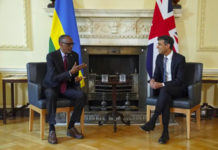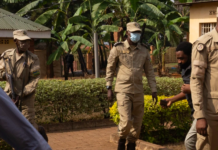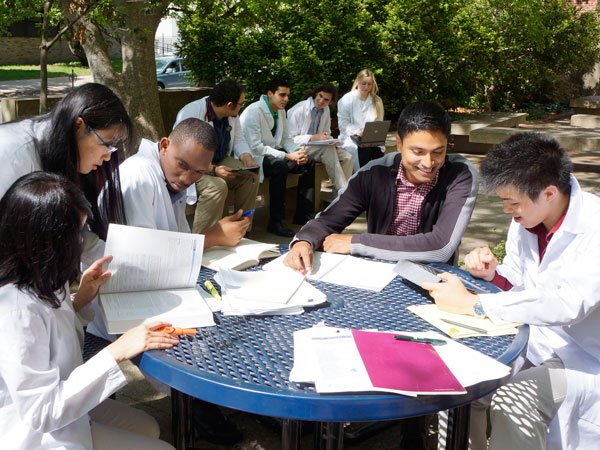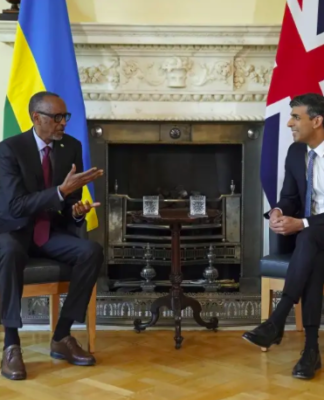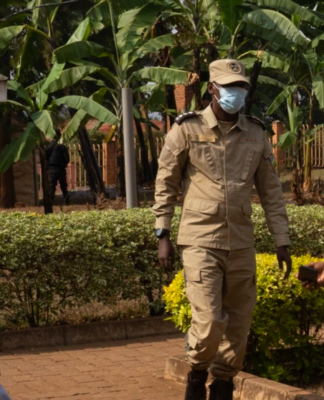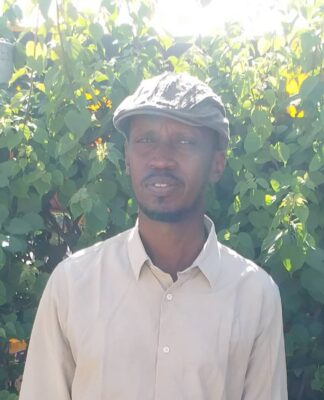PHILADELPHIA, UNITED STATES—Three students from the University of Rwanda College of Medicine & Health Sciences are among 12 students from around the world named recipients of the 2019 Student Projects for Health awards presented by the Educational Commission for Foreign Medical Graduates (ECFMG®) and its Foundation for Advancement of International Medical Education and Research (FAIMER®).
Fabrice Humara of Kigali, Rwanda, a pharmacy student; Evode Mbabazi of Kigali, Rwanda, a medical student; and Nishimagizwe Patience of Kigali, Rwanda, a medical student, earned the honors. They will have the opportunity to present their projects during the 2019 conference of The Network: Towards Unity for Health, which will be held September 10-13 in Darwin, Australia. The award includes air travel, hotel accommodations, and conference registration fee.
Humara’s project is titled Pharmacy Students’ Engagement in Prison Inmates’ Health Attention to Tuberculosis Disease. Rwanda has more than 700,000 people living with tuberculosis (TB). Due to current prison structures, inmates are living in close contact to other inmates infected with TB and run a greater risk of being infected.
The campaign introduces isolated rooms for TB-infected prisoners and enlists student volunteers to help guarantee that all infected prisoners are prescribed their medications with a healthy nutritious diet. The project also provides prisoners with health education sessions on TB. When the project first began, 30 prisoners were recorded to have been infected by TB; three years later, there are only 15 prisoners with TB, with only three of those being new cases. This project began in 2014 in one Rwandan prison and has since expanded to three prisons throughout the country.
Mbabazi’s project, titled CINEMA Education for Health, confronts the issue of unintended pregnancies in Rwanda where approximately six girls between the ages of 16 and 29 become unintentionally pregnant every hour. CINEMA Education for Health is an audio-visual model for comprehensive sex education to get adolescents engaged in a hands-on learning process. CINEMA offers the choice to watch, listen to, or read each video to include deaf and illiterate individuals previously neglected by traditional sex education methodologies. This project has so far benefited 1,200 youth and intends to expand to include other medical schools and radio stations.
Patience’s project, titled CompanionApp, is a mobile application that connects HIV patients with their doctors to improve adherence to the HIV medication regimen and overall care. The app alerts the user to take the correct dose and frequency of the medication and reminds the patient of future appointments at health care facilities. Users also have the option to receive online counseling and read and share success stories with other HIV patients. The app follows national HIV guidelines to list the side effects of antiretroviral (ARV) medications, drug interactions, a full list of drugs available in Rwanda, GPS locations with contact numbers for all HIV clinics in the country and works with pharmacists to show availability of ARV medications in stock. More than 300 people have been trained on how to use the CompanionApp, and 30 tablets have been given to district community members so that they can teach others how to use it. TheCompanionApp has helped approximately 840 HIV patients in less than five months.
“Promoting quality medical education and health care worldwide are core to the ECFMG/FAIMER mission,” said William W. Pinsky, MD, President and CEO of ECFMG and Board Chair of FAIMER. “The quality of this year’s projects and the engagement of these students in improving the health of their communities are truly inspiring. The recipients have demonstrated the innovation and diversity of efforts needed to meet global health care needs.”
Now in its fifth year, the Student Projects for Health competition recognizes students who have made outstanding contributions to projects that successfully promote community health and well-being. It is open to all undergraduate and graduate students enrolled in any course of study who have been participating in such projects. The competition is supported by FAIMER and ECFMG through its GEMxsm, program, which promotes global educational exchange in medicine and the health professions. Since the competition was launched in 2015, ECFMG/FAIMER has presented Student Projects for Health awards to 75 students from 22 countries.
From the 72 submissions received from around the globe, ECFMG/FAIMER selected 12 students from nine countries to receive this year’s awards. Submissions were reviewed by an international panel of 18 reviewers. They were judged on the quality of the project, degree and nature of the applicant’s participation, the applicant’s contribution to project innovation, the impact of the project, and diffusion and integration of the project.
About ECFMG and FAIMER
ECFMG and FAIMER are private, non-profit organizations based in Philadelphia in the United States. In partnership with each other and with other organizations around the world, ECFMG and FAIMER work to promote quality medical education and health care worldwide. ECFMG and FAIMER are leading experts on the world’s medical education systems and their graduates, the authenticity of physician credentials, the assessment of physicians, and research on physician migration and U.S. physician workforce issues. ECFMG and FAIMER offer programs and resources that serve global communities of medical educators and regulators; physicians and medical students; and those investigating issues in medical education, assessment, and health workforce planning. Learn more at www.ecfmg.org and www.faimer.org.

